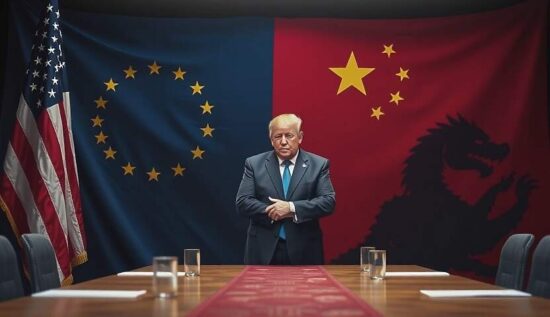European leaders are seeking a compromise to persuade US President Donald Trump to exclude the EU from his global trade war. This could, however, lead to a confrontation with China.
Trump has threatened to impose a 10% tariff on Chinese goods, following his previous threat to impose a 25% tariff on Mexican and Canadian goods, which he later retracted after receiving concessions on border security.
The EU is concerned about being the next target of Trump’s tariffs and has already faced criticism from the US president for its trade practices. Trump has specifically targeted Germany, calling EU trade practices “atrocities”.
To sway Trump, the EU is building pressure to toughen its stance against China, hoping to avoid being in the crosshairs of tariffs. This approach is seen as a way to maintain the EU’s relationship with the US, despite the recent tensions.
EU Trade Commissioner Maroš Šefčovič has suggested the EU and the US work together to address the challenges posed by China’s non-market economic policies. This marks the first time the EU has linked its trade policy with China to its efforts to win over Trump.
Despite the recent developments, the EU still prioritizes its relationship with the US, as stated by Kaja Kallas, the EU’s chief diplomat.
However, experts warn that taking a confrontational approach against China could be a risky move, as it could undermine the EU’s credibility in future negotiations and even lead to the fragmentation of the EU.
The EU’s 28 member states have different approaches to China, ranging from Lithuania’s strong ties with Taiwan to Germany’s significant economic ties with the country.
Instead of joining Trump’s criticism of China, the EU should “remain calm but develop countermeasures” said François Godement, a resident fellow at the Paris-based think tank, the Institut Montaigne.





